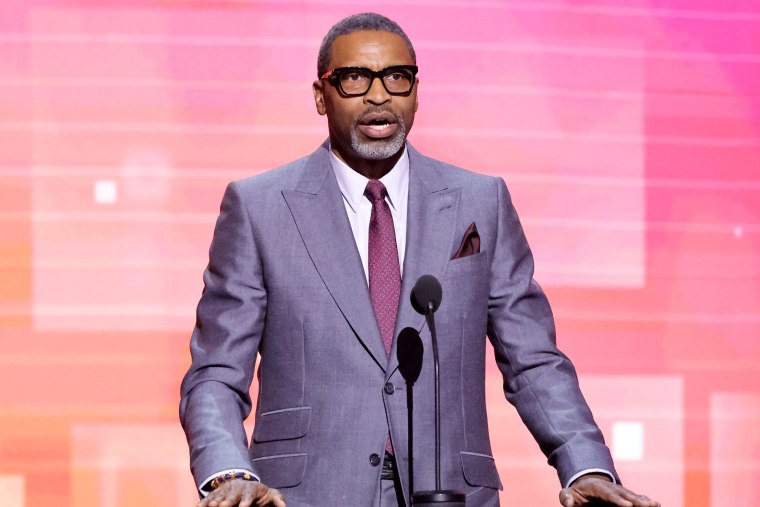America's leading civil rights organizations condemned the conservative-dominated Supreme Court for ending affirmative action programs at Harvard and the University of North Carolina on Thursday, with one top group accusing the high court of turning back the clock on the nation's history of racial progress.
In a pair of rulings, the court's conservative majority struck down the programs at two of the country's oldest institutions of higher learning. But the justices did not completely rule out race in admissions programs, writing in part that nothing "prohibits universities from considering an applicant’s discussion of how race affected the applicant’s life."
"Today the Supreme Court has bowed to the personally held beliefs of an extremist minority," NAACP President and CEO Derrick Johnson said in a statement. "We will not allow hate-inspired people in power to turn back the clock and undermine our hard-won victories. The tricks of America’s dark past will not be tolerated."
"Race plays an undeniable role in shaping the identities of and quality of life for Black Americans," Johnson added. "In a society still scarred by the wounds of racial disparities, the Supreme Court has displayed a willful ignorance of our reality. The NAACP will not be deterred nor silenced in our fight to hold leaders and institutions accountable for their role in embracing diversity no matter what."
The Rev. Al Sharpton, the president and founder of the National Action Network, said the Supreme Court had "stuck a dagger in the back of Black America." Sharpton, who hosts a weekend program on MSNBC, defended race-conscious admissions policies as a bulwark against centuries of racial injustices and social inequalities.
"Affirmative action was a commonly embraced policy because it served as a check on an admission process that was rife with racism, nepotism, and favoritism for generations," Sharpton said in a statement. "The reality is race plays a factor in admissions, from pre-K to post-doctorate, and institutions just saw their best tool for fairness outlawed."
ReNika Moore, the director of the racial justice program at the American Civil Liberties Union, noted that the Supreme Court's rulings do not preclude colleges from considering "race in alternative ways" and said it is incumbent on admissions officers to find paths to diversify their student bodies.
"The Supreme Court’s decision today does not change the responsibility of colleges and universities to increase educational opportunities for students of color," Moore said. "Colleges have long touted diversity as imperative to creating enriching educational environments for all students — our institutions of higher education must double down on that commitment and advance policies that ensure every student gets a fair shot."
The National Urban League, one of the largest civil rights organizations in the U.S., tweeted an image including an all-caps message against a red background: "A Historic Day for the Wrong Reasons."
The swift and forceful statements suggest that prominent civil rights leaders have been bracing for a ruling that would effectively doom race-conscious admissions at colleges and universities across the country. In oral arguments in late October, the conservative members of the court appeared to express deep skepticism about the practice.
The Supreme Court has upheld affirmative action programs dating to 1978, with the decision in Regents of the University of California v. Bakke.
In that case, a white man named Allan Bakke sued after he was twice rejected by the medical school at the University of California, Davis. The greed court agreed that Bakke had been discriminated against when the school decided to set aside 16 seats for minority students, but the justices allowed the use of race as a factor in the holistic admissions process.
Obamas and congressional leaders weigh in
The reaction from elected officials largely broke down along partisan lines, with Democrats assailing the court and Republicans praising the ruling. In a statement, Senate Majority Leader Chuck Schumer, D-N.Y., slammed the court for putting up "a giant roadblock in America's march toward racial justice."
In a joint statement, former President Barack Obama and Michelle Obama expressed their disappointment in the pair of Supreme Court decisions. The former first lady wrote in personal terms about the "new ladders of opportunity" afforded by race-conscious admissions and increased diversity on campuses.
"Today, my heart breaks for any young person out there who’s wondering what their future holds — and what kinds of chances will be open to them," she said. "And while I know the strength and grit that lies inside kids who have always had to sweat a little more to climb the same ladders, I hope and I pray that the rest of us are willing to sweat a little, too."
In a shorter statement, the former president acknowledged that, as a policy, "affirmative action wasn’t perfect."
"But it allowed generations of students like Michelle and me to prove we belonged," he said. "Now it’s up to all of us to give young people the opportunities they deserve — and help students everywhere benefit from new perspectives."
In an NBC News poll in April, a slim majority of Americans said affirmative action programs were still needed to "counteract the effects of discrimination ... as long as there are no rigid quotas." Forty-two percent said "affirmative action programs have gone too far in favoring minorities, and should be ended because they unfairly discriminate against white and Asian Americans."

